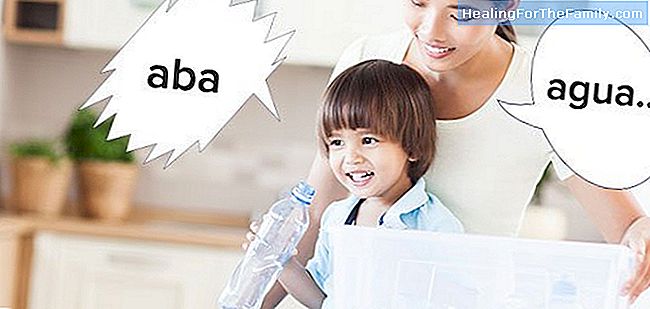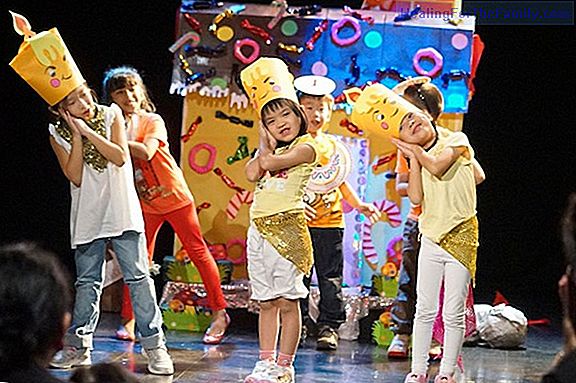Correct the child when he pronounces badly
Children learn to talk when interacting with adults from the moment of their birth. When a child emits a message, whether through a gesture, a sound or a word, he receives a response from his parents that serves as reinforcement and encourages his learning. This feedback is essential in the learning
Children learn to talk when interacting with adults from the moment of their birth. When a child emits a message, whether through a gesture, a sound or a word, he receives a response from his parents that serves as reinforcement and encourages his learning. This feedback is essential in the learning of language and in the rest of learning.
But it often happens that when the child is learning to speak, he does not pronounce some words well. To many parents it seems "funny" and instead of correcting them, they laugh. With this attitude, all they get is that the child does not learn to pronounce the word correctly.
What happens when we laugh at the child's bad words or imitate his child's language

When we laugh at the mistakes children make when expressing themselves or imitating their children's language (for example when we say wow instead of dog or run instead of a car) the only thing we are doing is emphasizing their childish way of speaking. Reinforcing these behaviors will be slowing their evolutionary development and we run the risk of the child having a speech or language delay.
How we can favor the development of our children's language
We must take into account some simple recommendations to favor and stimulate the language of our children:
1. Try to use a clear and natural language, with phrases that are comprehensible to the child and well structured. A language appropriate to the age and level of development of your child, avoiding abusing the diminutives or imitating their children's language.
2. It is good to talk to him frequently, slowly and vocalizing, but without simplifying or impoverishing the message. Try to introduce new words to enrich your vocabulary.
3. Pay more attention to what the child is trying to say than to how he is saying it. Do not constantly correct him, or force him to repeat well words that are difficult to pronounce. It is enough to repeat the word correctly after the child has finished or repeat it in the context of a sentence. For example, if the child says 'the tutala' to express his intention to take 'the spoon', we will respond with similar statements 'you want the spoon, let's eat the soup with the spoon ...', pointing and emphasizing the referred object. We have to present a correct model, not punish a fault.
4. Remember that talking to her and explaining things to her is very positive, but it is even more so to listen to her and to do it in a relaxed way. Try not to interrupt him when he talks and give him time to express himself.
5. Devote a daily time to be with your child and to talk to him. If you make comments instead of questions, you will see how your child enjoys talking more. You can stimulate your language in many ways: reading and commenting on stories, playing, talking about what you have done at school, singing songs, drawing together, commenting on what we do while we wash, ordering a room, preparing food ... the important thing is that you share moments of conversation.












